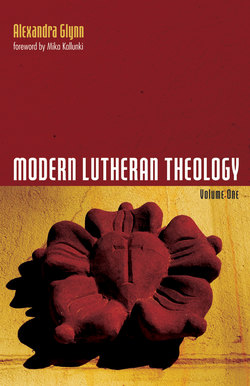Читать книгу Modern Lutheran Theology - Alexandra Glynn - Страница 8
На сайте Литреса книга снята с продажи.
Blind people
ОглавлениеIf you sat down to dinner with a blind person, would you mock his groping for a fork? Would you wonder why he makes a mess all over his shirt? Would you laugh at him if he tipped over his cup of milk? You would not. Why? Because you understand that the person sitting across from you is blind. They cannot see. Because they are blind, great compassion and help is shown to them.
Why then, I ask you, dear Christian, do you not treat people who are spiritually blind with the same compassion, with the same heart of help? Instead of being compassionate, we feel superior to the other one. We think: good for me, I know, and this other person, he sure is an idiot—he doesn’t know even the things that are obvious and easy.
Do you see our error, dear Christian? Do you notice that Jesus never had the smug and superior attitude that we have towards those who are blind? He knew that they were deaf and dumb and blind and that they didn’t even realize it. For every person in the natural world who is blind knows that he is blind. But the devil has caused the supreme blindness in those he has deceived. He has convinced them that, in fact, they see (John 9:39–41).
So let us look on those who are not of us as beloved of God and as possessed by the power of the wicked one, as Jesus did. Jesus “rebuked the foul spirit, saying unto him, thou dumb and deaf spirit, I charge thee, come out of him, and enter no more into him” (Mark 9:25). Notice that in this example Jesus isn’t even speaking to the individual human being. He is speaking to the foul spirit that possesses the heart of the human being. Jesus is so sure that the problem in the person is the evil that owns the person, that reigns in him. The human being himself is dear, beloved, and to be pitied. When people of the world threw themselves into the fire, or foamed like lunatics, Jesus knew it was the devil, and rebuked the devil (Matt 17:18). Thus, again, the person was separated from the power that had held him in thrall, the wrongness, the lies. The Bible explains to us how we are to understand those who do not believe. It says they are in “the snare of the devil,” and “are taken captive by him at his will” (2 Tim 2:26).
So let us be patient and compassionate and loving. Let us let our pride and flesh go—let us starve our flesh, for some devils do not come out of people except by fasting and prayer (Matt 17:21). For we are blind, and we know it, and therefore we see, by the Spirit, with eyes of faith. As it is written: “And in that day shall the deaf hear the words of the book, and the eyes of the blind shall see out of obscurity, and out of darkness” (Isa 29:18).
Christ, God’s own son, leads us, the blind and the lame. Therefore we see, and leap rejoicing: “And I will bring the blind by a way that they knew not; I will lead them in paths that they have not known. I will make darkness light before them, and crooked things straight. These things will I do unto them, and not forsake them” (Isa 42:16). Let us remember that “the hearing ear, and the seeing eye, the Lord hath made even both of them” (Prov 20:12). And let us remember that it is also written of those who do not take hold of the promises of God:
In them is fulfilled the prophecy of Esaias, which saith, “By hearing ye shall hear, and shall not understand; and seeing ye shall see, and shall not perceive. For this people’s heart is waxed gross, and their ears are dull of hearing, and their eyes they have closed, lest at any time they should see with their eyes, and hear with their ears, and should understand with their heart, and should be converted, and I should heal them.”
But we have received of grace the blessed portion: “But blessed are your eyes, for they see, and your ears, for they hear” (Matt 13:14–16).
